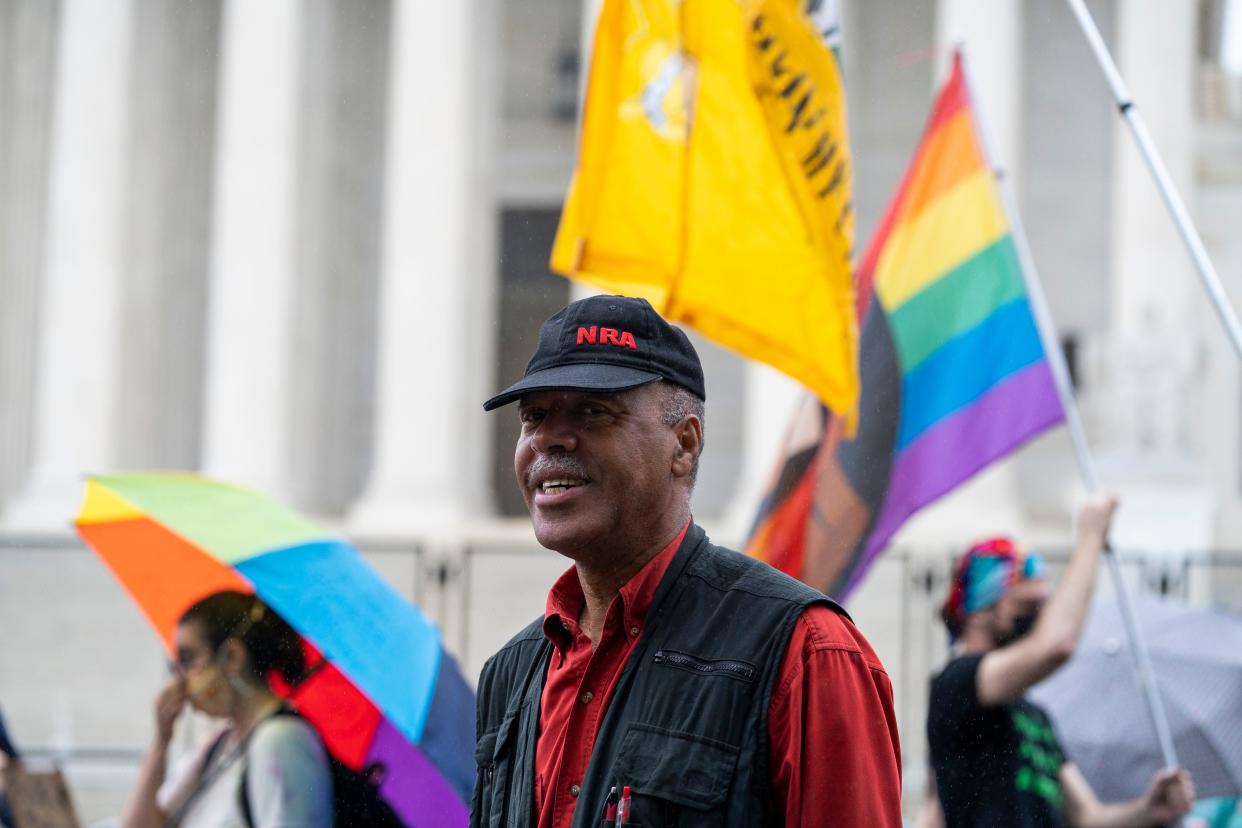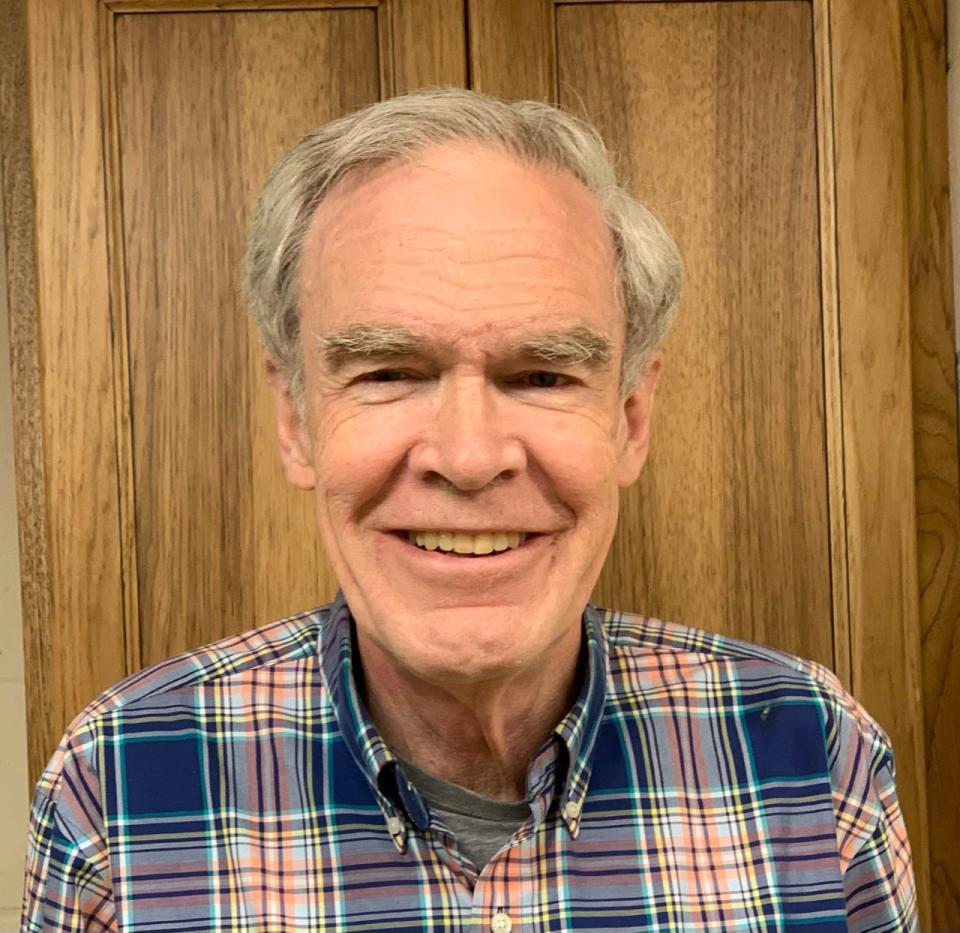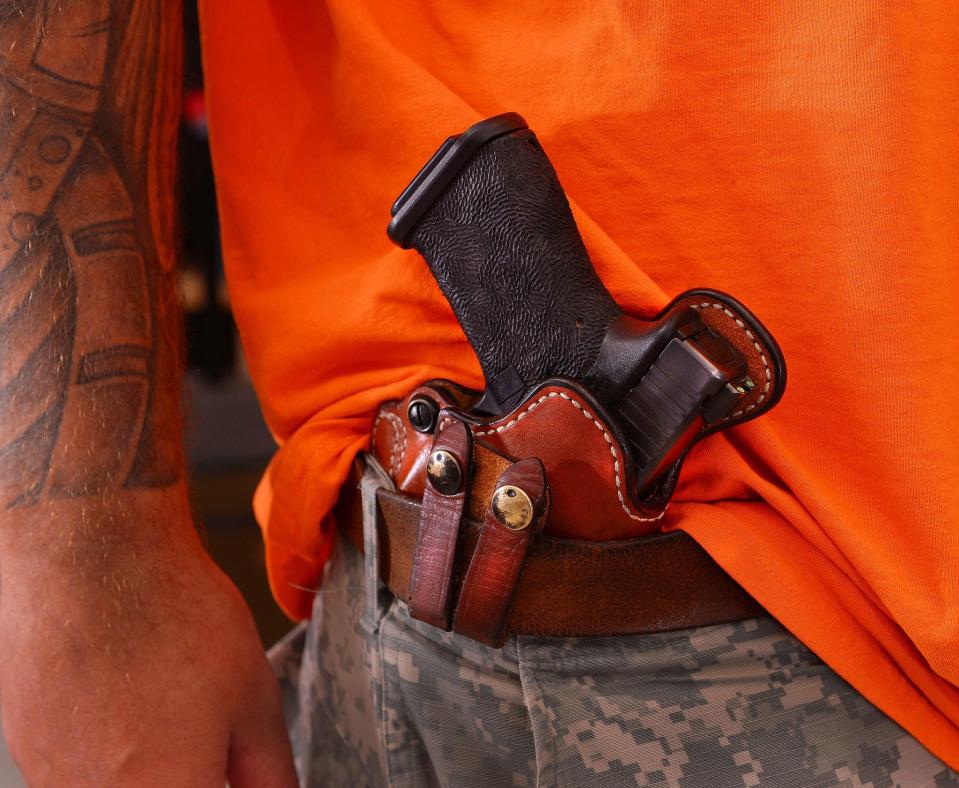There is no 'open season' on gun laws. Don't believe the hype. |Opinion

Bexley resident Douglas Rogers is a graduate of Yale Law School and a former military police captain. He was a partner in the law firm of Vorys, Sater, Seymour and Pease for more than 20 years. Rogers was a Moritz College of Law adjunct professor at Ohio State University from 2011-2016.
The Dispatch’s Aug. 5 article on gun licensing mistakenly headlined, “After ruling, it’s open season on US gun curbs” in light of the recent U.S. Supreme Court decision in Bruen. The article quoted a New Jersey “gun rights attorney” for the proposition that Bruen “will annihilate approximately 75% of the gun laws eventually.”
In fact, Bruen sets forth a standard by which most of this country’s existing gun licensing laws should be found to be constitutional.
In Bruen, the Court did conclude that the “may issue” licensing regimes in six states gave those states too much discretion and restricted – in violation of the Second Amendment - the right of citizens in those states to carry firearms for purposes of self-defense.
Supreme Court's gun rights decision, explained (dispatch.com)
The majority explained “may issue” regimes as follows: “only six States and the District of Columbia have ‘may issue’ licensing laws, under which authorities have discretion to deny concealed-carry licenses, even when the applicant satisfies the statutory criteria.”
The majority in Bruen, however, made it clear that the 43 states which have “shall issue” licensing regimes are presumptively constitutional.
Speaking for the Court, Justice Clarence Thomas said, “(N)othing in our analysis should be interpreted to suggest the unconstitutionality of the 43 States’ ‘shall-issue’ licensing regimes...”
Justice Thomas added, "(T)hese shall-issue regimes, which often require applicants to undergo a background check or pass a firearms safety course, are designed to ensure only that those bearing arms in the jurisdiction are, in fact, ‘law-abiding, responsible citizens.’”
Concurring with Justice Thomas’ decision in Bruen, Justices Brett Kavanagh and John G. Roberts Jr. confirmed that “the Court’s decision does not prohibit States from imposing licensing requirements for carrying a handgun for self-defense. In particular, the Court’s decision does not affect the existing licensing regimes — known as ‘shall-issue’ regimes — that are employed in 43 States.”
Fact check: Post exaggerates concealed carry permit holders in Florida (usatoday.com)
They continued, “shall-issue licensing regimes are constitutionally permissible, subject of course to an as-applied challenge if a shall-issue licensing regime does not operate in that manner in practice….”

Submit columns, editorials, OP-EDs to Columbus Dispatch: Here's how
They continued, “(T)he 43 States that employ objective shall-issue licensing regimes for carrying handguns for self-defense may continue to do so.” No justice in Bruen disagreed with this analysis.
An amicus in the Bruen litigation, subsequent to the decision in Bruen, observed that this concurrence “listed a few presumptively acceptable regulations [in “shall issue” states], including background checks.” The amicus added that this concurrence of Justices Kavanaugh and Roberts “will be key as Second Amendment litigation moves through lower court.”
Bruen also did not change the point that Justice Amy Coney Barrett made when she was an appellate judge on the Seventh Circuit — that the Second Amendment allows legislatures to take away an individual’s access to a firearm if that individual is a danger to himself or others.
She relied on a separate Seventh Circuit decision, which held, “Congress is not limited to case-by-case exclusions of persons who have been shown to be untrustworthy with weapons nor need these limits be established by evidence presented in court.”
Column: The Second Amendment right to bear arms is not absolute (dispatch.com)
More:Column: The Second Amendment right to bear arms is not absolute
Indeed, the Supreme Court in Bruen said, “The historical evidence from antebellum America does demonstrate that the manner of public carry was subject to reasonable regulation. Under the common law, individuals could not carry deadly weapons in a manner likely to terrorize others.”

In short, Bruen and other recent decisions do not create an “open season” on state gun laws. Instead, Bruen sets forth a standard for the reasonable, objective regulation of guns by state legislatures through “shall issue” licensing regimes that the majority of states already have in place.
Bexley resident Douglas Rogers was a partner in the law firm of Vorys, Sater, Seymour and Pease for more than 20 years. He was a Moritz College of Law adjunct professor at Ohio State University from 2011-2016.
This article originally appeared on The Columbus Dispatch: Ruling on gun licensing will not set back efforts to curb gun violence

